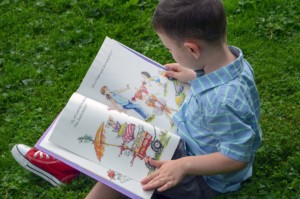Statistics show, 1 in 12 children between the age of 3 and 17, have some type of speech or language disorder. At some time, most parents wonder if their child is keeping up with their classmates or friends. While children develop at their own pace, how do you know when it is time to seek help so they don’t fall behind.
Signs your child can benefit from speech therapy
Social Interaction
At a very young age, children learn to interact and communicate. Here is a guideline of social interaction to help determine if your child can benefit from speech therapy.
 Birth to 3 months
Birth to 3 months
Makes cooing sounds
Seems to recognize your voice
One to two years old
Points to objects when you ask
Able to respond to simple questions
Starting to ask questions, such as “What’s that?”
Two to three years old
Understands opposites like up and down
Uses two to three words to ask for things
Asks “Why?”
People who know your little one can understand them
Three to four years old
Can respond to you when called from another room
Answer simple questions, who, what, where
Able to put four word sentences together
Four to five years old
Understands order words, first, next, and last
Follow directions that are longer, “ put your toys away, brush your teeth, and pick pout a book”
Know names, numbers, and letters
Keeps a conversation going
Able to tell a short story
Vocabulary
 On average, children 18 months old know 20 words. By the time they are 2 years old they should know 30 more. If your child isn’t understanding and using new words regularly, they may benefit from speech therapy.
On average, children 18 months old know 20 words. By the time they are 2 years old they should know 30 more. If your child isn’t understanding and using new words regularly, they may benefit from speech therapy.
Early Sentences
Simple sentences, with two or more words should start around two years old. Such as, “mommy play” or “play outside”. If your child has a difficult time building sentences, speech therapy can help.
Understanding What Your Child Says
If you notice family members or other people are struggling to understand your 3 year old, language therapy can help.
If you have any concerns about the development of your child’s speech or language, contact First Words Therapy. We are happy to help with any concerns or answer any questions.


